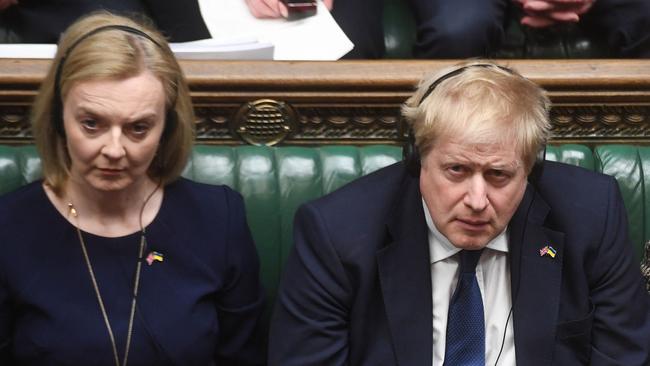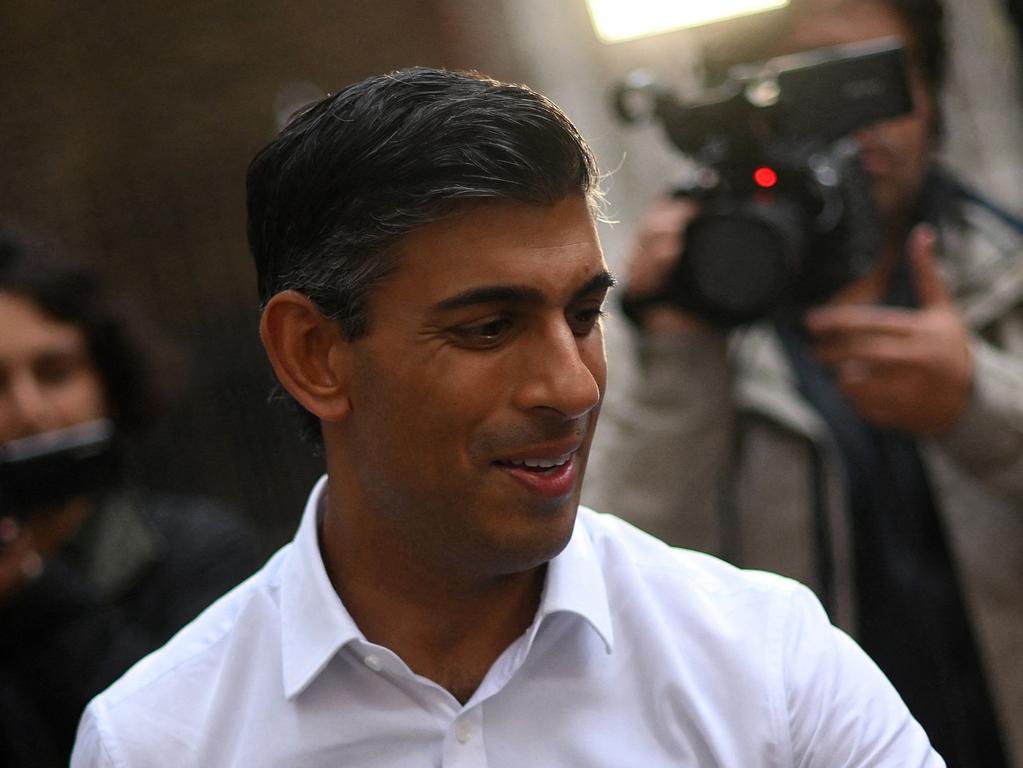
Liz Truss was a poor choice for prime minister at any time. Nor was it likely a resurrected Boris Johnson could revive the Tories electorally or Britain economically. None of what has happened in Britain discredits free market economics, cultural conservatism or Brexit.
Ideological battle over what caused the Tories’ implosions will be fierce. To control the political future it is essential to control the way the past is interpreted.
In fact, although the historical circumstances obviously differ, in many respects what Britain needs more than anything right now is a new Margaret Thatcher. That is certainly not what Truss offered in her short and calamitous premiership. Put aside what the Marxists might consider the “subjective” factors – Johnson’s rumbustious personality, the establishment never forgiving him for Brexit and so on. Consider instead the “objective” circumstances of policy and history.
Two things have killed the Conservatives – Covid and net zero.
Covid-19 has been diabolical for centre-right governments around the world. They handled Covid generally no better or worse than centre-left governments. But Covid hurt conservatives in two crippling ways.
First, it forced them to abandon altogether the idea of balanced budgets. It is quite right in an emergency for a government to spend much more than it takes in, but in general, as Thatcher constantly reminded her countrymen, a nation’s finances are like a family’s finances. You can’t spend more than you earn in the long run. You can borrow only if you can pay it back or if your income is substantially rising.
The whole Western world has had 15 years of near zero interest rates. This led to peculiar forms of policy madness such as Modern Monetary Theory, which held that government debt had no bad consequences. Conservatives in the Thatcher mould, on the other hand, believed in sound money even more than they believed in free market economics.
You got the budget back into balance, that was the key to broader policy freedom, and enabled supply-side reform such as lower taxes. John Howard did it for us. Even today we are relatively well off because he left us with no debt and money in the bank. Ronald Reagan was the first free market conservative not to worry about deficits. The deficit is big and ugly enough, he famously said, to look after itself.
But this was a specific, time-limited political tactic in response to congress refusing to cut spending. Reagan cut taxes to promote growth, believing the consequent deficit would force congress to cut spending. To some extent this did happen in the high-growth economy he bequeathed the US.
Conservatives since then, notably George W. Bush and Donald Trump, and our own Coalition governments after Tony Abbott, have provided big-spending, big-deficit governments. Covid made this syndrome much worse. The British Conservatives spent perhaps half a trillion pounds on Covid-related measures. We in this country spent hundreds of billions of dollars. In both countries the expenditure was excessive and poorly designed.
Any social or political group that wanted anything felt entitled to get it from the government. For British Conservatives, and possibly for the Australian Coalition parties as well, it totally destroyed their key brand of financial responsibility. This wild financial irresponsibility was sustainable while rates were near zero.
The Albanese government readily attributes $1 trillion of debt to the Coalition. In fact, it’s a bit less than that. But Jim Chalmers is right to identify the cost of servicing the debt in an environment of rising interest rates as one of the biggest imposts on the budget.
That’s always the problem with Keynesianism. I yield to no one in my admiration for Johnson in getting Brexit done. But his fiscal policy was his cake policy – he was in favour of having it and eating it.
The British Conservatives had taken debt and deficit spending to such a point that a new burst of unfunded tax cuts and spending increases, as Truss proposed, combined with the roiling instability around the Conservative government meant that markets priced in a crippling higher risk premium for new British debt.
Massive British government spending had guaranteed rising inflation, just as Joe Biden’s trillions of dollars of spending has done in the US, and our own spending similarly in Australia. Higher inflation means higher interest rates.
It is not free market economics that is discredited by this but traditional Keynesianism. Under Keynesian economics, governments are encouraged to borrow more to stimulate an economy suffering sluggish growth. But the lesson of the Keynesian 1970s is you can’t spend your way out of stagflation. Thatcher preached the opposite of Keynesianism. She bled politically, heroically, to cut spending in order to cut taxes. Cutting spending seems now beyond Western politics. This is especially a crisis for centre-right governments because sound money, financial prudence, was their core identity.
That and national security. Thatcher took the immense national security popularity she earned from the Falklands War and put it at the service of sound money and fiscal prudence, as well as supply-side tax cuts. Johnson, tragically, could not take his Brexit popularity and put that to the use of good economic policy.
On top of that, Covid left centre-right constituencies confused over civil liberties, with a segment of their base disgruntled.
Net zero is an even bigger disaster for centre-right parties. They don’t really believe in it but are imprisoned by it. A lot of it is irrational policy. Thus Western Europe wouldn’t develop its own fossil fuels because it believed it would switch entirely to renewable energy. The problem is, whatever anyone tells you, this transformation comes at enormous cost and in any event needs to be underpinned by fossil fuels, especially gas, as a back-up. So Western Europe became hugely dependent on Russia for gas.
Johnson’s government was entirely incoherent on this. Like Australian conservatives, it knows the policy is impossibly costly. But it’s not brave enough to break with the policy and contest it. Nor it can it implement it. Energy costs are a critical part of the British Conservative crisis.
Now it’s time for the so-called “boring tendency” in British politics, represented by Rishi Sunak and Jeremy Hunt, to tell everyone that Daddy can’t afford the Christmas presents after all. Reality has a way of asserting itself.








It was not free market economics that got Britain’s Conservative government into such diabolical trouble. Nor is it undemocratic for bond markets to decide that another few score billions of pounds of unfunded expenditure and tax cuts would lead to higher interest charges for British government debt.